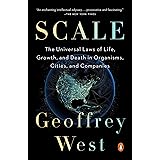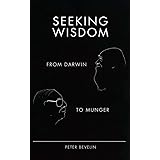
Enjoy fast, free delivery, exclusive deals, and award-winning movies & TV shows with Prime
Try Prime
and start saving today with fast, free delivery
Amazon Prime includes:
Fast, FREE Delivery is available to Prime members. To join, select "Try Amazon Prime and start saving today with Fast, FREE Delivery" below the Add to Cart button.
Amazon Prime members enjoy:- Cardmembers earn 5% Back at Amazon.com with a Prime Credit Card.
- Unlimited Free Two-Day Delivery
- Streaming of thousands of movies and TV shows with limited ads on Prime Video.
- A Kindle book to borrow for free each month - with no due dates
- Listen to over 2 million songs and hundreds of playlists
- Unlimited photo storage with anywhere access
Important: Your credit card will NOT be charged when you start your free trial or if you cancel during the trial period. If you're happy with Amazon Prime, do nothing. At the end of the free trial, your membership will automatically upgrade to a monthly membership.
Buy new:
-25% $21.85$21.85
Ships from: Amazon Sold by: Olive Bookstore
Save with Used - Acceptable
$9.12$9.12
Ships from: Amazon Sold by: Jenson Books Inc

Download the free Kindle app and start reading Kindle books instantly on your smartphone, tablet, or computer - no Kindle device required.
Read instantly on your browser with Kindle for Web.
Using your mobile phone camera - scan the code below and download the Kindle app.

OK
 Audible sample Sample
Audible sample Sample 


The Formula: The Universal Laws of Success Hardcover – November 6, 2018

Explore your book, then jump right back to where you left off with Page Flip.
View high quality images that let you zoom in to take a closer look.
Enjoy features only possible in digital – start reading right away, carry your library with you, adjust the font, create shareable notes and highlights, and more.
Discover additional details about the events, people, and places in your book, with Wikipedia integration.
Purchase options and add-ons
Too often, accomplishment does not equal success. We did the work but didn't get the promotion; we played hard but weren't recognized; we had the idea but didn't get the credit. We convince ourselves that talent combined with a strong work ethic is the key to getting ahead, but also realize that combination often fails to yield results, without any deeper understanding as to why. Recognizing this striking disconnect, the author, along with a team of renowned researchers and some of the most advanced data-crunching systems on the planet, dedicated themselves to one goal: uncovering that ever-elusive link between performance and success.
Now, based on years of academic research, The Formula finally unveils the groundbreaking discoveries of their pioneering study, not only highlighting the scientific and mathematic principles that underpin success, but also revolutionizing our understanding of:
Why performance is necessary but not adequate Why "Experts" are often wrong How to assemble a creative team primed for success How to most effectively engage our networks
"This is not just an important but an imperative project: to approach the problem of randomness and success using the state of the art scientific arsenal we have. Barabasi is the person."-Nassim Nicholas Taleb, author of the New York Times bestselling The Black Swan and Distinguished Professor of Risk Engineering at NYU
- Print length320 pages
- LanguageEnglish
- PublisherLittle, Brown and Company
- Publication dateNovember 6, 2018
- Dimensions6.38 x 1.25 x 9.63 inches
- ISBN-100316505498
- ISBN-13978-0316505499
The Amazon Book Review
Book recommendations, author interviews, editors' picks, and more. Read it now.
Frequently bought together

Similar items that may deliver to you quickly
Editorial Reviews
Amazon.com Review
Review
"This is not just an important but an imperative project: to approach the problem of randomness and success using the state of the art scientific arsenal we have. Barabasi is the person."―Nassim Nicholas Taleb, author of the New York Times bestselling The Black Swan and Distinguished Professor of Risk Engineering at NYU
"Laszlo Barabasi is an extraordinary scientist who has enjoyed great success. He brings to bear all of his capacity as the former to understand the latter--to our great benefit. Writing in a lively fashion, he illuminates broad principles that explain how people in all fields--from entrepreneurs to scientists to athletes to artists--achieve success. The insights are novel and useful, and backed not just by vivid stories, but also by the sorts of detailed and inventive scientific analyses, plainly explained, for which Barabasi is rightly famous."―Nicholas Christakis, co-author of Connected and the Sol Goldman Family Professor of Social and Natural Science at Yale University
"In his new book, Laszlo Barabasi delights us with the stories and mechanisms that explain success in our achievement obsessed society."―Cesar A. Hidalgo, author of Why Information Grows and Director of the Macro Connections group at the MIT Media Lab
"Barabasi will indelibly transform the way we all think about success."―Alex Pentland, author of Social Physics and Toshiba Professor at MIT
"It's rare that a book about success turns out to be such a page-turner, but there you go. File [The Formula] away with Freakonomics or Outliers."―Geekwire
"A fascinating new book."―Bloomberg Businessweek
"If you are currently at the top of your field, but you want to knock everyone else off the mountain, Barabasi will tell you how. And if you're not quite there yet, these laws might give you something to think about on the way up."―Lifehacker
"A fun, fast, first-hand account of efforts to use big data to pull back the curtain on our collective dynamics.The Formula offers a rich tour of research on how relatively simple feedback forces channel our lives in surprising and counter-intuitive ways."―Nature
"The Formula is an important book for us all to read. It weaves together meticulously researched historical context with more than a decade of Barabási's and other scholars' "eureka moments" and research findings to extract scientific principles and actionable insights for achieving success."―Science
About the Author
Albert-László Barabási is the Robert Gray Dodge Professor of Network Science and a Distinguished University Professor at Northeastern University, where he directs the Center for Complex Network Research and holds appointments in the Department of Medicine at Harvard Medical School and the Central European University in Budapest.
A native of Transylvania, Romania, he received his Masters in Theoretical Physics at the Eötvös University in Budapest, Hungary and Ph.D. at Boston University. His previous work includes Bursts: The Hidden Pattern Behind Everything We Do (Dutton, 2010), which is available in five languages, and Linked: The New Science of Networks (Perseus, 2002), which is available in fifteen languages.
Barbási is the author of Network Science (Cambridge, 2016) and the co-editor of The Structure and Dynamics of Networks (Princeton, 2005). His work has led to many breakthroughs, including the discovery of scale-free networks in 1999, which continues to make him one of the most cited scientists today.
Product details
- Publisher : Little, Brown and Company (November 6, 2018)
- Language : English
- Hardcover : 320 pages
- ISBN-10 : 0316505498
- ISBN-13 : 978-0316505499
- Item Weight : 1.1 pounds
- Dimensions : 6.38 x 1.25 x 9.63 inches
- Best Sellers Rank: #692,830 in Books (See Top 100 in Books)
- #1,668 in Popular Social Psychology & Interactions
- #4,255 in Entrepreneurship (Books)
- #8,483 in Success Self-Help
- Customer Reviews:
About the author

Albert-László Barabási is the Robert Gray Dodge Professor of Network Science and a Distinguished University Professor at Northeastern University, where he directs the Center for Complex Network Research, and holds appointments in the Departments of Physics and College of Computer and Information Science, as well as in the Department of Medicine at Harvard Medical School and Brigham and Women Hospital in the Channing Division of Network Science, and is a member of the Center for Cancer Systems Biology at Dana Farber Cancer Institute. A Hungarian born native of Transylvania, Romania, he received his Masters in Theoretical Physics at the Eötvös University in Budapest, Hungary and was awarded a Ph.D. three years later at Boston University. Barabási latest book is "Bursts: The Hidden Pattern Behind Everything We Do" (Dutton, 2010) available in five languages. He has also authored "Linked: The New Science of Networks" (Perseus, 2002), currently available in eleven languages, and is the co-editor of "The Structure and Dynamics of Networks" (Princeton, 2005). His work lead to the discovery of scale-free networks in 1999, and proposed the Barabasi-Albert model to explain their widespread emergence in natural, technological and social systems, from the cellular telephone to the WWW or online communities.
Customer reviews
Customer Reviews, including Product Star Ratings help customers to learn more about the product and decide whether it is the right product for them.
To calculate the overall star rating and percentage breakdown by star, we don’t use a simple average. Instead, our system considers things like how recent a review is and if the reviewer bought the item on Amazon. It also analyzed reviews to verify trustworthiness.
Learn more how customers reviews work on Amazon-
Top reviews
Top reviews from the United States
There was a problem filtering reviews right now. Please try again later.
1. Performance drives success, but when performance can't be measured, networks drive success.
2. Performance is bounded, but success is unbounded.
3. Previous success x fitness [high potential]= future success.
4. While team success requires diversity and balance, a single individual will receive credit for the group's achievements.
5. With persistence success can come at any time.
These are among Barabási's observations of greatest interest and value to me in the first two chapters:
o As he and his research associates put their heads together, "we were suddenly seeing [begin italics] a series of recurring patterns that drive success in most areas of human performance [end italics].
"Because the patterns that began to emerge were so universal, we started to call them the Laws of Success. Given that scientific laws are immutable, doing so probably seemed brash to outside researchers. But the more we explored and tested them, the more solid and general they appeared...These laws are what separate the best seller from the bargain bin and the billionaires from the bankrupt." (Pages 11 and 15)
o Success is a collective measure, "capturing how people respond to our performance. In other words, if we want to measure our success or figure out how we will ultimately be rewarded, we can't look at our performances or accomplishments in isolation. Instead, we need to study our community and examine its response to our contributions. It's this clear distinction between success and performance that helped us in the lab to identify the universal patterns represented by each of the laws shared in this book."
"Our new definition of success is foundational to the rest of the book. It tells us that success is [begin italics] a collective phenomenon rather than an individual one [end italics]." (25 and 26)
o Historically, Boston Latin students have performed better on the SAT test than their counterparts at most other schools, locally and nationally "because [begin italics] high achievers continue to excel no matter what education a school offers [end italics]. The Boston Latin students have that superior collective SAT score at graduation because the entrance exam selected the top performers to begin with...In other words, Boston Latin doesn't make your daughter a better student. It's your daughter who makes Boston Latin into the elite school it is. (49)
o Moreover, if individual performance drives collective success, the single determinant "was derived from the best college a kid [begin italics] merely applied to [end italics], even if she didn't get in [because] it's performance and ambition -- [begin italics] where she thinks she belongs [end italics] -- that determines your daughter's success." (50-51)
In Chapter 7, Barabási explains how quality defies social influence. He examines the results of experiments conducted by the MusicLab at Yahoo to answer this question: "How does popularity influence success?" About 14,000 young people (from grades 1-6) participated. The experiments were conducted at the Oak School, an elementary school in a lower-middle-class neighborhood in San Francisco.
Details of the experiments -- including results -- are best revealed within the narrative, in context, but there's no need for a spoiler alert when I suggest that success can -- as can failure -- become a self-fulfilling prophecy. At Oak Hill, teachers knew which of their students were identified as high potential so they encouraged brilliance. "The children responded by producing brilliance."
According to Barabási, "Self-fulfilling prophecies suggest that, under the right circumstances, the weakest [whatever] can land at the top. But can a false belief in a person or a product's value lead to lasting success? Or are we bound to notice, sooner or later, that the emperor has no clothes? Two years after the original experiment, the MusicLab went back to the drawing board, hoping to address this precise question." Stray tuned.
No brief commentary such as mind could possibly do full justice to the value of the information, insights that Albert László Barabási provides in abundance. However, I hope I have at least indicated why I think so highly of his book. He and his research associates are to be commended on their determination to identify not only the universal laws of success but also to suggest the potential relevance of each to failure as well.
Having been a classroom teacher of private school and public college students for almost thirty years, I can personally attest to the significance of the self-fulfilling prophecy, for better or worse. As Henry Ford suggested long ago, "Whether you think you can or think you can't, you're probably right."
So I shelved my concerns about the bold claims of universal laws and pre-ordered the book, anxiously awaiting November 6th for more reasons than one.
The book delivered on my expectations and was a thoroughly enjoyable collection of stories of colleagues and their journeys to discovery. As a bit of an insider - chapter 8 did indeed entail some of my advisor's more recent published work on the Miles Davis Factor - I recognized what makes reading Laszlo's writing so enjoyable is that he touches on the human aspects of success and failure in our own journeys as network scientists to discover what drives success. And perhaps my reluctance to embrace "universal laws" as a fitting title was that it seemed to tidy things up and obscure the many false-starts and dead-ends that so marked these researchers journeys. I was wrong.
The Science of Success is not written. This is just the introduction. I suspect Laszlo's lab will be producing new insights along with the confederation of Science of Success researchers across the globe for years to come.
Beyond that, it showed why I was wrong early in my career when participating in a Horizon TV show on biomechanics produced by the BBC. In a late night discussion with the producer, I said I hoped the show and our research on the function of sharkskin in locomotion was a big success because nobody over 30 did anything really new. Our producer disagreed, saying the unifying characteristic of people making important contributions, early or late in their careers, was they were new to the field. He cited the example of an electron microscopist at the NY Blood Bank who was puzzled by particles showing up in his micrographs, so he isolated them and found they were a strain of hepatitis that was rare in NY but that was ravaging parts of Africa. Not stopping there, without formal virology training he went on to raise a vaccine where many others had failed. So people with the ability to perform can and do move between fields, going from success to success even after the age of 30. :-)
Dr. Barabasi's research also shows the need for doggedness given the inherently conservative nature of a grant reviewer faced with something new.














